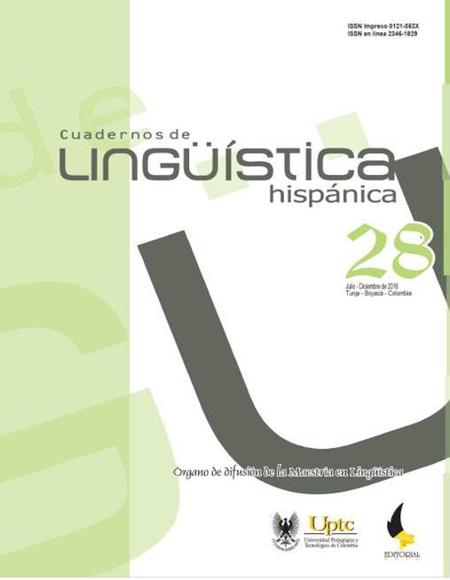Peer support in small group EFL writing tasks

Abstract
This paper reports on a classroom-based research study focused on the issue of support in the context of small group writing tasks in an EFL course. The main interest was in analyzing how learners structure different forms of assistance depending on their intersubjective awareness of each other’s goals and needs in the task. This structuring of learner support was compared to that of teacher-provided support in order to identify similarities and contrasts. Learners were found to provide at least three types of support: cognitive, strategic and feedback support. In each of these support types, specific intersubjective dynamics are reported to unfold as learners’ construed peers’ ongoing needs and goals. Teacher support was found to be mostly strategic, that is, mostly oriented towards task performance. Besides, it is suggested that teacher support often mismatches learners’ needs due to lack of spaces for establishing intersubjective ground. Pedagogical and research implications are finally discussed.
Keywords
ntersubjectivity, peer support, small group task, teacher support.
Author Biography
Jesús David Guerra Lyons
Licenciado en Humanidades – inglés, Universidad de Córdoba. Magíster en la Enseñanza del Inglés, Universidad del Norte. Docente tiempo completo del Instituto de Idiomas de la Universidad del Norte, Barranquilla – Colombia. Miembro del grupo de investigación Lenguaje y Educación (Colciencias A).
References
- Aljaafreh, A., & Lantolf, J.P. (1994). Negative feedback as regulation and second language learning in the zone of proximal development. The Modern Language Journal, 78, 465-483. DOI: https://doi.org/10.1111/j.1540-4781.1994.tb02064.x
- Davin, K.J., & Donato, R. (2013). Student collaboration and teacher-directed classroom dynamic assessment: A complementary pairing. Foreign Language Annals. doi: 10.1111/flan.12012 DOI: https://doi.org/10.1111/flan.12012
- DiCamilla, F. J., & Anton, M. (2012). Functions of L1 in the collaborative interaction of beginning and advanced second language learners. International Journal of Applied Linguistics, 22, 160-188. DOI: https://doi.org/10.1111/j.1473-4192.2011.00302.x
- Donato, R. ( 1994). Collective scaffolding in second language learning. In J. P. Lantolf & G. Appel (Eds.). Vygotskian approaches to second language research (pp. 33-56). Norwood, NJ: Abblex.
- Higgins, L., Flower, L. & Petraglia, J. (1992). Planning text together. The role of critical reflection in student collaboration. Written Communication, 9(1), 48-84. DOI: https://doi.org/10.1177/0741088392009001002
- Keys, C.W. (1994). The development of scientific reasoning skills in conjunction with collaborative assessments. An interpretive study of 6-9th grade students. Journal of Research in Science Teaching, 3(9), 1003-1022. DOI: https://doi.org/10.1002/tea.3660310912
- Lantolf, J., & Thorne, S. (2006). Sociocultural theory and the genesis of second language development. Oxford University Press.
- Lantolf, J. (Ed.) (2000). Sociocultural theory and second language learning. Oxford University Press.
- Martin, J., & White, P. (2005). The language of evaluation. New York, NY: Palgrave Macmillan. DOI: https://doi.org/10.1057/9780230511910
- Matusov, E. (2001). Intersubjectivity as a means of informing teaching design for a community of learners classroom. Teacher and Teacher Training, 17(2001) 383-402. DOI: https://doi.org/10.1016/S0742-051X(01)00002-6
- Richards, K. (2003). Qualitative inquiry in TESOL. Basingstoke: Palgrave Macmillan. DOI: https://doi.org/10.1057/9780230505056
- Stake, R. (1995). The art of case study research. Thousand Oaks, CA: Sage.
- Storch, N. (2005). Collaborative writing: Product, process, and students’ reflections. Journal of Second Language Writing, 14, 153-173. DOI: https://doi.org/10.1016/j.jslw.2005.05.002
- Swain, M., & Lapkin, S. (2001). Focus on form through collaborative dialogue: Exploring task effects. In M. Bygate, P. Skehan & M. Swain (Eds.). Researching Pedagogic Tasks. Second Language Learning, Teaching and Testing (pp. 99-118). Harlow: Longman.
- Swain, M., Kinnear, P., & Steinman, L. (2011). Sociocultural theory in second language education. Multilingual Matters.
- Tomasello, M., Kruger, A., & Ratner, H. (1993). Cultural learning. Behavioral and Brain Sciences, 12, 120-134. DOI: https://doi.org/10.1017/S0140525X0003123X
- Traugott, E. (2010). (Inter)subjectivity and (inter)subjectification. In K. Davidse, L. Vandelanotte & H. Cuyckens (Eds.). Subjectification, Intersubjectification and Grammaticalization. Berlin: Mouton de Gruyter, 29-71. DOI: https://doi.org/10.1515/9783110226102.1.29
- Trevarthen, C. (1979). Communication and cooperation in early infancy: A description of primary intersubjectivity. In M. Bullowa (Ed.). Before speech: The beginning of interpersonal communication. Cambridge: Cambridge University Press.
- Van Compernolle, R. (2011). Developing second language sociopragmatic knowledge through concept-based instruction: a microgenetic case study. Journal of Pragmatics, 17, 1-17. DOI: https://doi.org/10.1016/j.pragma.2011.06.009
- Verhagen, A. (2005). Constructions of intersubjectivity: discourse, syntax and cognition. Oxford: Oxford University Press.
- Vygotsky, L. (1978). Mind in society. The development of higher psychological processes. Cambridge, M.A: Harvard University Press.
- Webb, N. (1989). Peer interaction and learning in small groups. International Journal of Educational Research, 13, 21-40. DOI: https://doi.org/10.1016/0883-0355(89)90014-1
- Webb, N. M., & Kenderski. C. M. (1984). Student interaction and learning in small group and whole class settings. In P. L. Peterson, L. C. Wilkinson & M. Hallinan (Eds.). The social context construction: Group organization and group processes (pp. 153-170). New York: Academic Press.
- Wertsch, J. V. (1979). From social interaction to higher psychological processes. Human Development, 22, 1-22. DOI: https://doi.org/10.1159/000272425